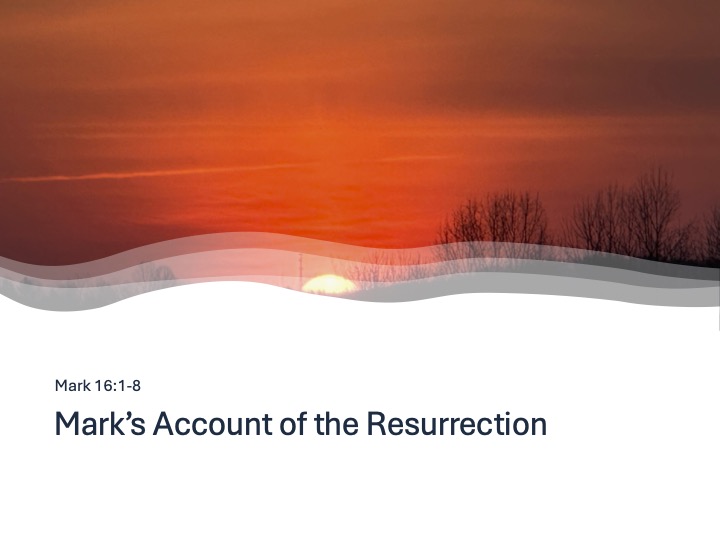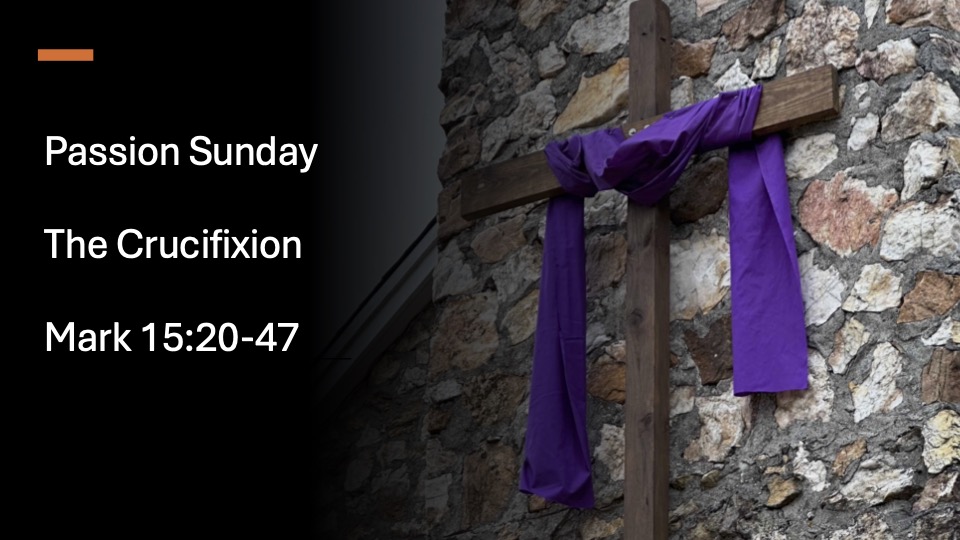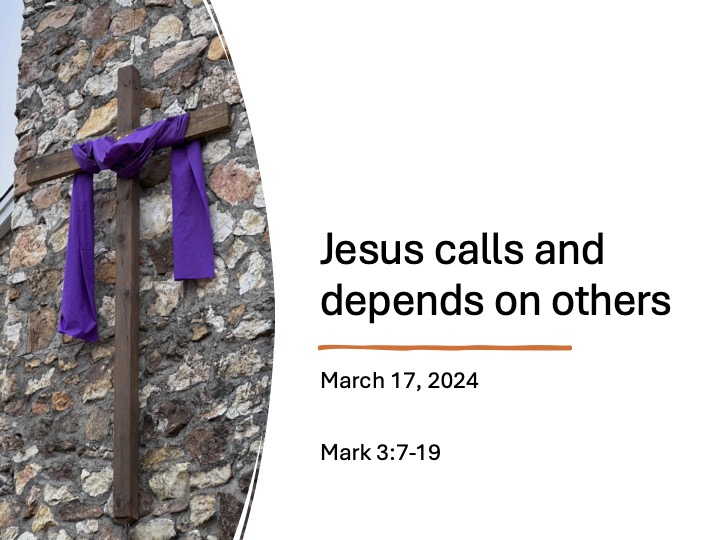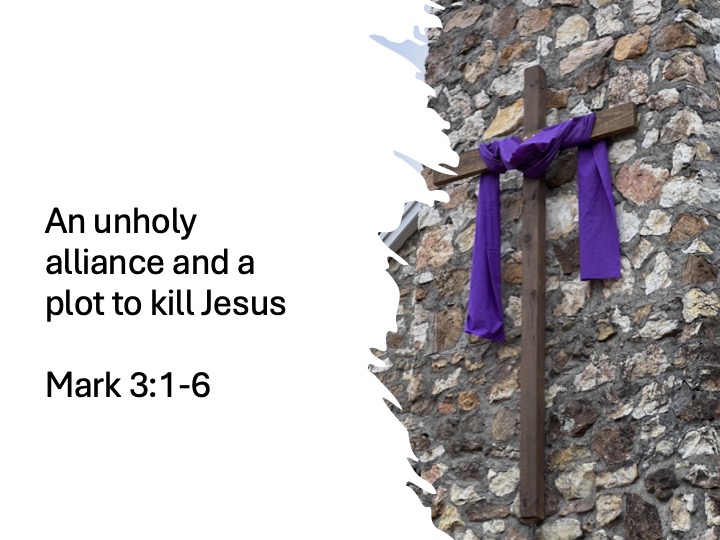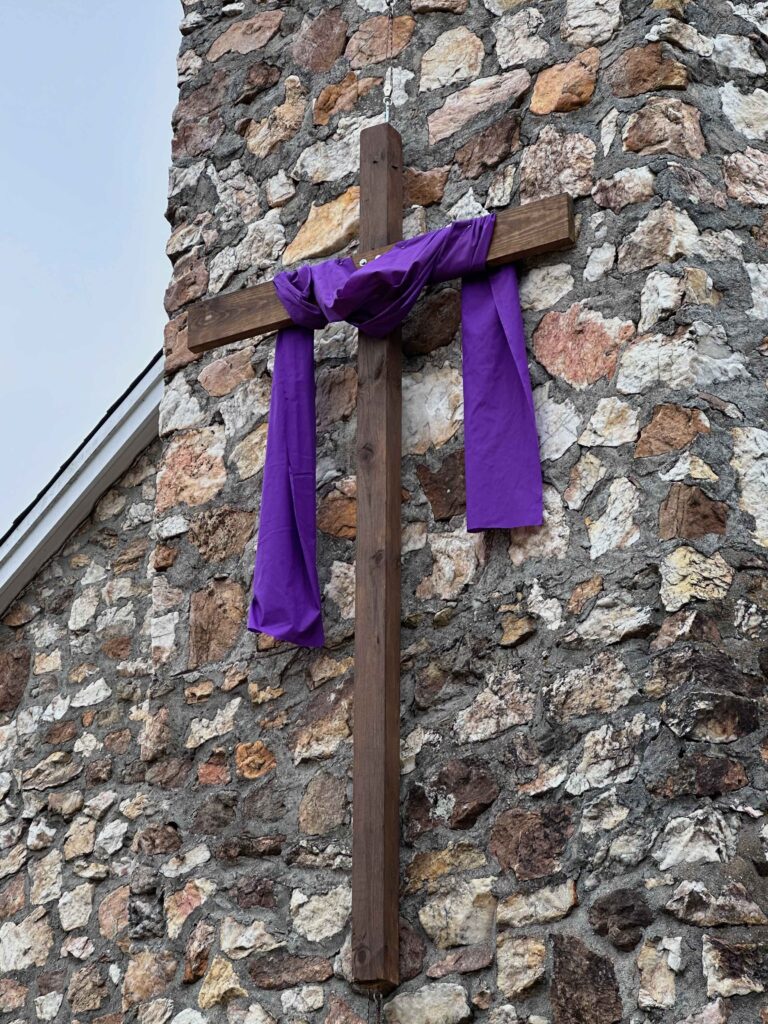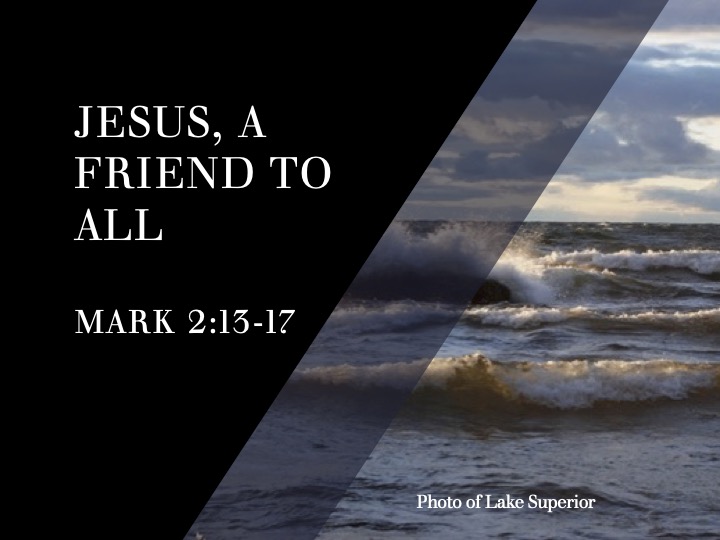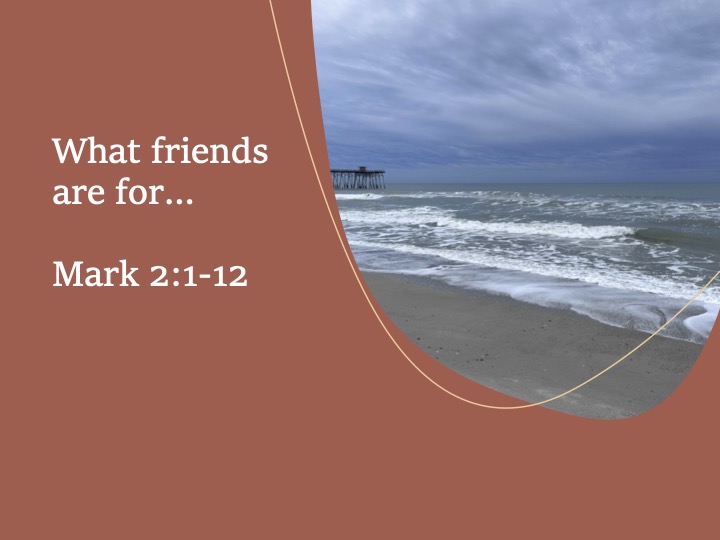Jeff Garrison
Mayberry & Bluemont Churches
April 7, 2024
Mark 3:20-35.
What is the unpardonable sin? As we’ll see in our reading this morning, blasphemy against the Holy Spirit is not forgivable. When I was an early teen, I thought this meant one could not say, G-D. Now, we shouldn’t say that word, but the idea of it being unpardonable was scary. Ever hit your thumb with a hammer? If that’s the unpardonable sin, should I give up hope. I’d committed the sin, along with most everyone I knew. And if there’s no hope, we’ll I might as well not worry about other sins.
But what is this sin. After all, Jesus never clearly defines the unpardonable sin. I would later hear the sin described as one who repeatedly denied the call of the Spirit to repentance until it was too late. That’s the approached taken by the evangelist A. B. Earle, in his sermon titled “The Unpardonable Sin. He preached this sermon frequently while on the sawdust trail across the American West in 1866-1867.
He told of a Civil War surgeon who patient artery was cut. He could only hold the artery so long. He knew when he let go, the patient would likely bleed out before he could sew it up.[1] He used this story to encourage those at his revivals to immediately get right with God. Earle pulled a few emotional strings by threatening damnation if they don’t accept Jesus. Interestingly, that’s not something Jesus ever did. Yet, Earle definition of the unpardonable sin seems closer to the truth than mumbling the wrong word in frustration.
As one scholar noted, if we are worried about having the committed the sin, it is obvious that we haven’t committed it. Furthermore, there is no Scriptural record of God denying forgiveness for those who ask for it.[2] That’s the good news!
Before reading the Scripture
After two weeks further ahead in Mark’s gospel, we’ve moved back to the 3rd chapter. Here we see one of Mark’s literary techniques. He creates a sandwich. Here, he places Jesus’ teaching in the middle, between interactions with people.[3]
We will also see a new name for Satan, Beelzebub. There is some question as to the actual meaning of this name. Perhaps it derived from the ancient Baal gods, but we don’t know. Instead, the context in the passage clarifies its meaning, referring to the ruler of demons.[4] Or Satan.
Read Mark 3:20-35
It’s baseball season. And the Pirates started off hot, winning their first five games! But that doesn’t have anything to do with today’s passage.
Do any of you remember Red Barber? For a Southern boy, he did good. For many years, Red was the announcer for the Brooklyn Dodgers. In 1953, he was stolen away by the Yankees. And in the 1950s, before my memory, the Yankees were the hottest things in Baseball and Barber was the hottest thing on radio.
After his retirement, Red did a short weekly program for National Public Radio. This is how I came to know of him. During this era, I didn’t own a TV and caught the news on NPR.
Sometime around 8:30 on Friday mornings, Bob Edwards, the show’s host, would give a call to Red at his Florida home. Bob and Red would chat about important things to the kingdom, like gardening and baseball. Red always stole the conversation from the younger Bob, whom he referred to as “Colonel.” “Fridays with Red” always made you feel good, and they kept the show going for 12 years. It was a sad day when Bob announced to his listeners of Red’s death in 1992.
A year after Red’s death, Bob Edwards published a wonderful memoir titled Fridays with Red. If you’d like to be taken back to a simpler time, I recommend it. He tells this story in the book.
Red was also an Episcopal lay reader. He should have been a Presbyterian, as he grew up attending the Presbyterian Sunday School, but he married an Episcopalian. This is kind of like how things work in baseball. One farm team raises up a player and another team reap the benefits… I suppose our efforts helped strengthen the larger church with Red’s development. Red would become a favorite in the pulpit and often led worship services for the Yankees when they were on the road. (My cynical side thinks the Yankees are always in need of some good preaching.)
Red titled his favorite sermons, preached many times, “Look Behind the Cape.” He described having once gone to a bull fight. He detested the afternoon. A bull slaughtered for sport wasn’t sportsman-like to Red, but when in Spain you do as the Spaniards. Red admitted, he found himself rooting for the bull. In the arena, the bull becomes confused. That’s why he always loses. Before being released from the chute, the handlers aggerate the bull. Then he charges the only thing he can see, the red cape. He becomes so focused on the cape, that he pays no attention to the matador, the one with the sword.
Red said he even tried mental telephony, telling the bulling to “look behind the cape.”[5]
That’s good advice. Look behind the cape. What are peoples’ intentions? And, while we are at it, what are our intentions. Where do our allegiances lie? We should also look behind our capes before we go seeking what’s behind others. Jesus said something like this in the Sermon on the Mount.[6]
The third chapter of Mark’s gospel began with the conflict between Jesus and the religious leaders breaking out into war. We saw this in verse 6, when the Pharisee’s recruited their enemies, the Herodians, to help do away with Jesus.
But the religious leaders have a problem. Jesus is gifted with great power to do wonderful things. And, because of his miracles, he draws huge crowds.
So many people flock to Jesus, he’s left with no time to eat. His family is concerned, so they suggest Jesus is out of his mind.
The scribes are now coming after Jesus on a new tack. They attempt to convince the crowd that Jesus’ powers are demonic.
Look behind the cape! What are the intentions of the religious leaders? Is it to help those caught up in sin and evil? Or do they desire to protect their power? Jesus used his powers for the good! Not thinking about the good he’s done; the leaders want to do away with Jesus so they can continue to enjoy their privilege spot in society.
But Jesus is clever. He doesn’t accuse the religious leaders of working for Satan. That would have resulted in each side calling the kettle black. Instead, Jesus asks a riddle, “How can Satan cast out Satan?” “Why would Satan do himself in? If Satan has the power over a person, he won’t give it up without a battle.” Then Jesus tells a parable which is key to understanding his work in the world.
How can a man enter the house of a strong man and plunder the strong man’s goods? On a quick reading, we might think Jesus refers to the crime of breaking and entering. But then, we realize Jesus isn’t talking about a thief. He’s referring to himself.
The “strong man” house which Jesus breaks into belongs to Satan. But Satan’s possessions don’t really belong to him. So don’t think Jesus is encouraging robbery. Jesus frees people from Satan’s power by tying up the “strong man.” Only by doing so, can he free those caught in Satan’s trap of sin and deceit.
Next, Jesus refers to the unpardonable sin. Again, as I said at the beginning of the service, this is a difficult passage to understand. In Jesus’ words here, we find encouragement at the possibility of forgiveness. But we’re also warned against suggesting the Spirit’s power in Jesus is demonic. If we want to experience forgiveness, we must be willing to accept Jesus’ offer.
Finally, Mark lays the other slice of bread onto the sandwich by returning to his family. We’re told that Jesus’ mother and brothers are waiting outside for him. While we are not told whether Jesus goes out to greet them. Instead, Jesus uses this news to teach something else. “Who are my mother and brothers?” he asks. And then he answers himself, “Whoever does the will of God.”
Jesus crowns this sandwich with this last teaching. We should turn it into a question we ask ourselves, as we look behind our own capes. Are we doing the will of God? Or do we have some alternative motive? Our faith must be centered on God as revealed to us in Jesus Christ. What’s important isn’t our wants and desires, but God’s will. Amen.
[1] I discuss this sermon in detail in my article on Earle’s revivals. See Charles Jeffrey Garrison, “Bringing In Sheaves: The Western Revivals of the Reverend A. B. Earle, 1866-1867,” American Baptist Quarterly XXXV, #3 (Fall 2006), 247-272.
[2] James R. Edwards, The Gospel According to Mark (Grand Rapids, MI: Eerdmans, 2002), 224.
[3] Edwards, 117; and Douglas R. A. Hare, Westminster Bible Companion: Mark (Louisville, KY: WJKP, 1996), 50
[4] Edwards, 120. See also Hare, 50 and Morna D. Hooker, The Gospel According to Saint Mark (1991, Hendrickson Publisher, 1997), 115-116.
[5] Bob Edwards, Fridays with Red (New York: Pocket Books, 1993), 145.
[6] Matthew 7:1-5.


